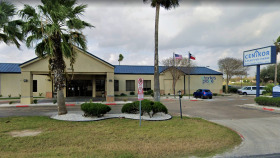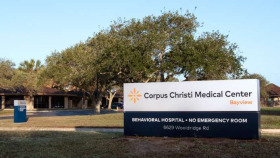Expert Insights
Corpus Christi is struggling with opioid addiction just like most other areas of the nation, but being a border state, they certainly have a lot more on their plates than many other states. That’s why I think it’s such a wonderful idea that the Texas Substance Use Symposium is held each year. One of my peers attended the event in Corpus Christi last year and she said she learned so very much about the state of addiction in Texas and what the more than 300 government and health officials were doing to fight substance abuse both in Nueces County and across the state. This is one of the very best ways to disseminate information and highlight programs and efforts on the horizon.
~ Natalie Baker
How Expensive is Drug Rehab in Corpus Christi?
Costs associated with treatment at Corpus Christi drug rehabs can vary significantly depending on several factors. The level of care you need, the type of facility you select, and the way you choose to pay can all impact your out-of-pocket costs.
Variables that affect the cost of drug or alcohol rehab in Corpus Christi include:
Treatment setting (inpatient involves room and board expenses, whereas outpatient does not)
Facility amenities (treatment centers that offer private rooms, holistic therapies, recreational facilities, and other amenities are more expensive)
The type of health insurance you have (certain plans provide more coverage for addiction treatment than others)
The type of insurance a rehab center accepts (if your insurance provider isn’t in-network at a specific facility, insurance likely won’t pay for care)
The type of care you need (specialized services like dual-diagnosis treatment and medication-assisted treatment can increase your costs)
If you’re worried about your ability to afford rehab, you may be eligible for financial assistance that can help reduce or even eliminate your out-of-pocket costs. Non-profit and state-funded addiction treatment centers often provide reduced-cost services, and many facilities also offer financing and other forms of payment assistance that can help.
How Does Corpus Christi Compare in Alcohol and Drug Use?
Corpus Christi is a coastal city in the southern region of Texas and is home to more than 320,000 residents.But like in so many other cities in the Lone Star State, opioid-related overdose deaths have been on the rise. Fentanyl, a powerful synthetic opioid that is up to 50 times stronger than heroin and 100 times stronger than morphine, caused 883 overdose deaths in Texas in 2020 and 1,672 deaths in 2021 – an 89% increase.If you or someone you love is struggling with addiction, there are seven accredited alcohol and drug rehab centers in Corpus Christi that can help you begin your recovery journey.
Corpus Christi is the county seat and largest city in Nueces County, Texas. The community and surrounding county have one of the highest overdose death rates in the State of Texas at 10.4 per 100,000 people. Other alcohol and drug use statistics of note for the Corpus Christi area include:

In 2019, nearly 4,600 residents were admitted to treatment for alcohol or drug addiction.

Among Nueces County teens, approximately 1,000 had a substance use disorder and 400 had co-occurring disorders.

In 2018, roughly 20,000 adults in Nueces County and surrounding areas had a substance use disorder.
Alcohol and Drug Laws in Corpus Christi, Texas
Texas Good Samaritan Overdose Prevention Law: The Texas Good Samaritan Overdose Prevention statute was signed into law to protect individuals who call 911 for help during a suspected overdose, providing immunity from arrest or prosecution. However, this law only protects persons who have illicit substances meant for personal use only and those who have not previously used this law’s protection.
Addiction Treatment for Persons Convicted of Nonviolent Offenses: Senate Bill 1849, also called the Sandra Bland Act, requires Texas jails to promptly identify and evaluate inmates with suspected substance use or mental health disorders. Under this law, such individuals who’ve been arrested for or convicted of nonviolent infractions must be diverted to an addiction or mental health facility.
Resources
- Corpus Christi, Texas Population 2021 (Demographics, Maps, Graphs). (n.d.). Worldpopulationreview.com.
- Texas Health Institute. (2021). Advancing Health Equity in Nueces County Amid and Beyond the COVID-19 Pandemic, Final Report.
- Meadows Mental Health Policy Institute. (2020). Nueces County Comprehensive Behavioral Health Community Needs Assessment.
- National Institute on Drug Abuse. (2020). Substance Use in Women Drug Facts. Sex and gender differences in substance use.


















